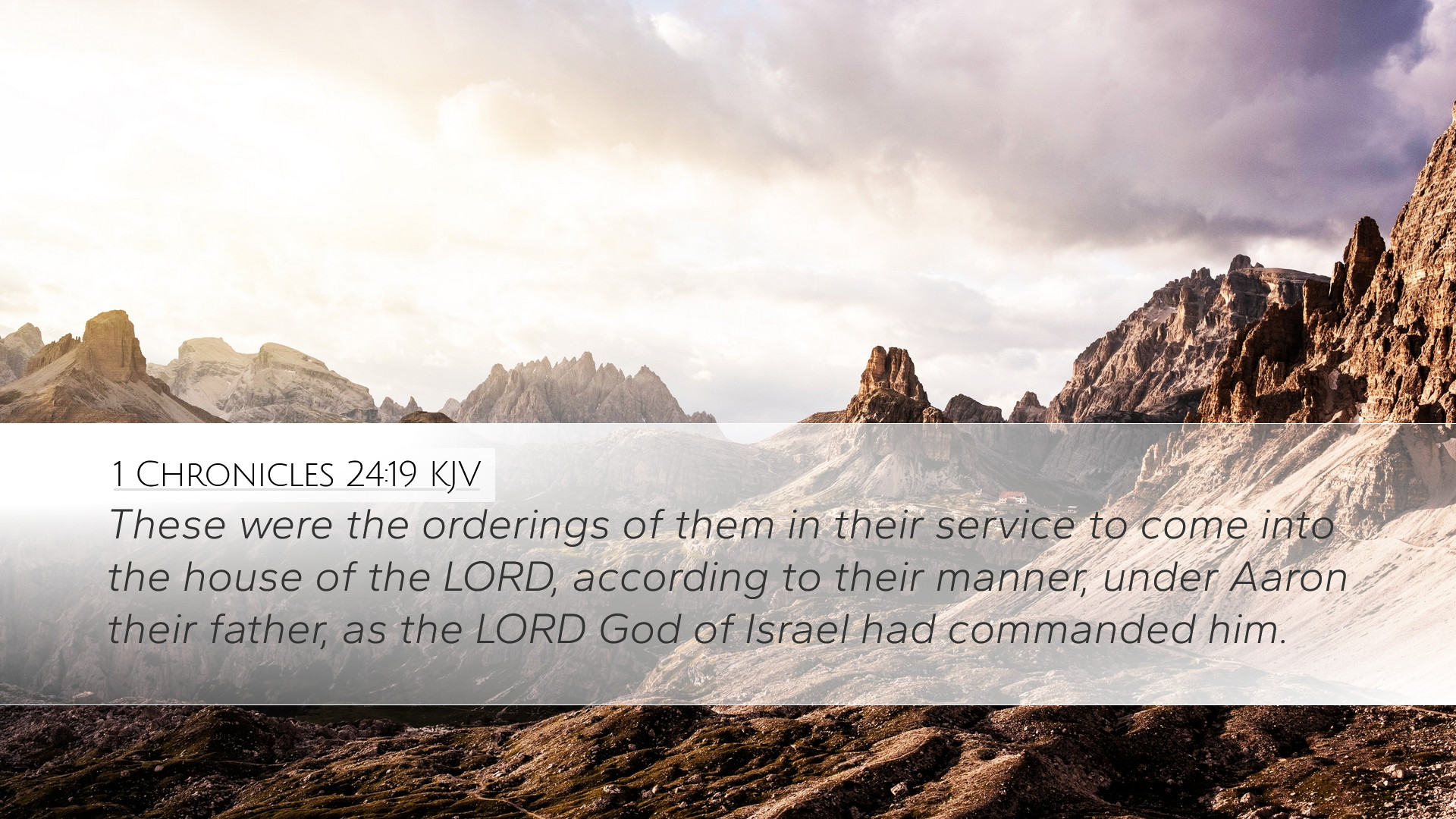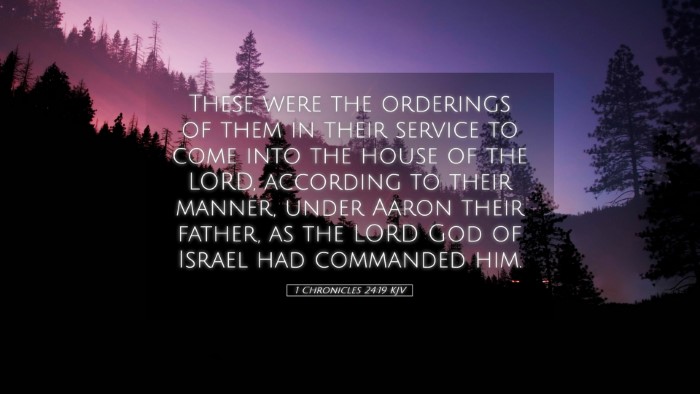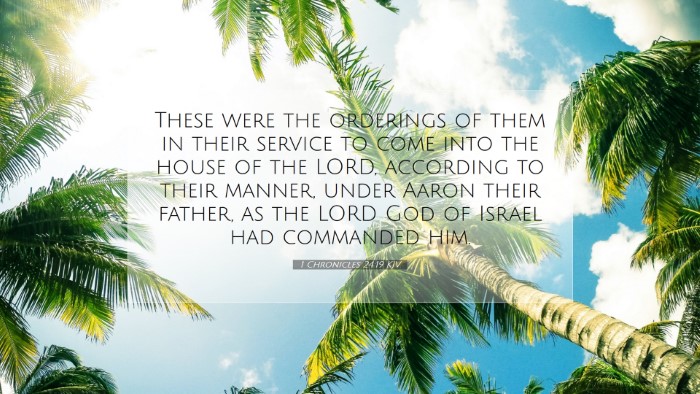Commentary on 1 Chronicles 24:19
1 Chronicles 24:19 states: "These were the orderings of them in their service to come into the house of the Lord, according to their manner, under Aaron their father, as the Lord God of Israel had commanded him." This verse serves as a bridge to understanding the organization of the Levitical priesthood and introduces the structured nature of worship in ancient Israel.
Historical Context
Matthew Henry emphasizes the importance of establishing divine order in the service of God. The Levitical priesthood, descended from Aaron, was commanded by God to serve in the Tabernacle and later in the Temple. This organizational structure not only reflects God's desire for order in worship but underscores the covenant relationship He had with the people of Israel.
The division of priests into different orders was essential for maintaining the sanctity and regularity of worship. Aaron's descendants had specific roles, and this verse points out that these roles were prescribed according to divine command, thus legitimizing the hierarchy established for the service of God.
The Nature of Divine Command
Albert Barnes notes that the phrase "as the Lord God of Israel had commanded him" highlights the significance of obedience to God's directives. The priests were not serving according to their whims or traditions, but in strict adherence to God’s instructions. This illustrates a foundational principle of biblical worship: it is not only about the act of worship, but also about the manner in which it is conducted.
This principle of obedience resonates throughout Scripture, presenting a challenge to today’s believers to examine the motivations behind their worship practices and to align them with God's will. Worship should be approached with reverence and guided by scriptural precedent.
The Role of Priests
Adam Clarke provides insight into the priestly role by examining the duties outlined in the broader context of 1 Chronicles 24. He elaborates on the responsibilities assigned to the various families of the Levites, emphasizing that their ministry was crucial for the spiritual life of Israel. Each priestly division had designated times for service, symbolizing God’s orderly approach to worship and supporting the community’s spiritual health.
The priests were mediators between God and the people, facilitating rituals and sacrifices that were essential for atonement and maintaining a right relationship with God. This office was not taken lightly; the priest’s actions had significant implications for the nation. Thus, their proper organization as described in this verse was vital.
Lessons for Today
This verse serves as a reminder of the importance of structure and order in worship and ministry. Matthew Henry suggests that every aspect of church service should be conducted with intentionality and respect for God’s commandments, reflecting an understanding that our worship is to be 'in spirit and in truth' (John 4:24).
- Obedience to God's Word: The focus remains on adhering to scriptural guidance in all aspects of worship.
- Understanding Roles: Just as the Levitical priests had specific roles, church members today should understand and embrace their tasks within the body of Christ.
- Order in Worship: The systematic approach to ministry teaches modern churches the value of organization for effective service and worship.
Theological Implications
The theological implications of this verse extend to understanding God's holiness and the seriousness of worship. Albert Barnes articulates that worship must reflect God’s sanctity, indicating that every worship experience should aim to honor God’s character. The call to holiness in Leviticus reverberates through this passage, reminding us that worship is a response to God's intrinsic righteousness.
Adam Clarke adds that this notion of being commanded to serve also holds implications for our understanding of service today. Just like the priests were called out from among the people, believers are called to serve God in their communities, emphasizing that every Christian serves as a 'priest' in their own right (1 Peter 2:9).
Conclusion
In summary, 1 Chronicles 24:19 encapsulates the heart of the Levitical priesthood's organization and their divine mandate. The themes of order, obedience, and purpose resound for worshippers today. The combination of insights from Matthew Henry, Albert Barnes, and Adam Clarke guide contemporary readers to reflect deeply on their approach to worship and their roles within the church, reminding us that our service must always be aligned with God's holy calling.
This passage challenges us to align not only our actions but our very hearts with the divine command, ensuring that our worship is acceptable and pleasing to our Creator.


